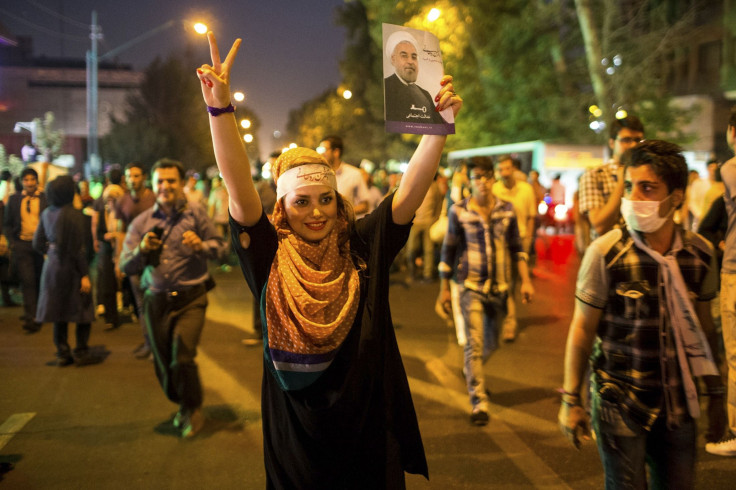Iran's Elections: 'Reformer' Hassan Rowhani Wins, But Israel Is Unconvinced Of Change

In sharp contrast to the debacle of 2009, Iran's presidential election proceeded Saturday with relative ease, little controversy, and no reported violence. Voter turnout, at 72 percent, was one of the highest in the Islamic Republic's recent history.
Despite the upset victory for the most reformist candidate, Hassan Rowhani, conservative Tehran Mayor Mohammed Bagher Qalibaf, who came in second, quickly conceded in the face of Rowhani's 50.7 percent of the 36 million votes cast. While that is technically not quite enough for a mandate -- Iran requires a candidate to take 51 percent of the vote to declare victory -- the other candidates all took percentages under 20, giving Rowhani the clear victory.
To his supporters, Rowhani seems like a breath of fresh air after eight years of Mahmoud Ahmadinejad, who was once Supreme Leader Ayatollah Ali Khamenei's favorite but quickly fell out of favor during his second term. "We won't let the past eight years go on," Rowhani told crowds attending a pre-election rally, USA Today reported. "Ahmadinejad's administration brought sanctions for the country and they are proud of it. I'll pursue a policy of reconciliation and peace, we will also reconcile with the world."
Rowhani may brand himself a reformer now, but he came into his own in the current political establishment, and was once a member of the late Ayatollah Ruhollah Khomeini's inner circle.
Israel doesn't seem to be impressed. On Sunday, Prime Minister Benjamin Netanyahu warned the international community not to get caught up in "wishful thinking" about Iran's policy toward Israel, AP reported.
Conservative factions still control the Iranian parliament and the military, Haaretz commentator Zvi Bar'el wrote on Sunday. "The results indicate a strong erosion of his [Khamenei's] popularity," Bar'el wrote. "…But his [Rowhani's] victory does not guarantee a dramatic and immediate change in Iran's nuclear policy. That issue is in Khamenei's hands."
Bar'el also pointed out that while Rowhani might not deny the Holocaust as vociferously as Ahmadinejad did, he still considers Israel an enemy, and also told a Saudi paper in a recent interview that "defending the regime of [Syrian President Bashar] al-Assad is in Iran's national interest, and Syria serves as a critical front line against Israel."
Israeli President Shimon Peres differed somewhat, calling Rowhani's election a mandate against Khamenei and the clerical hierarchy. "It is clearly a voice of the people and a voice that says, 'We don't agree with this group of leaders,'" Peres told the AP.
© Copyright IBTimes 2024. All rights reserved.






















